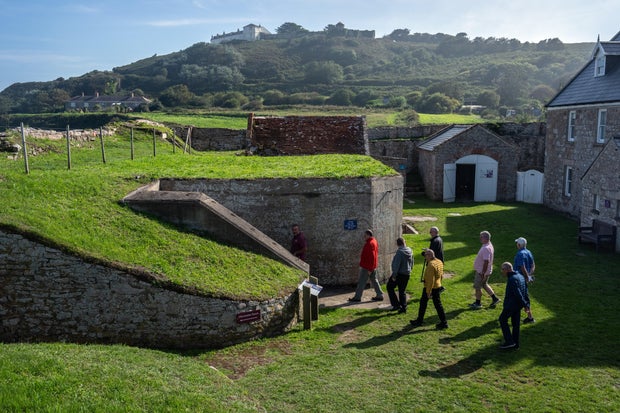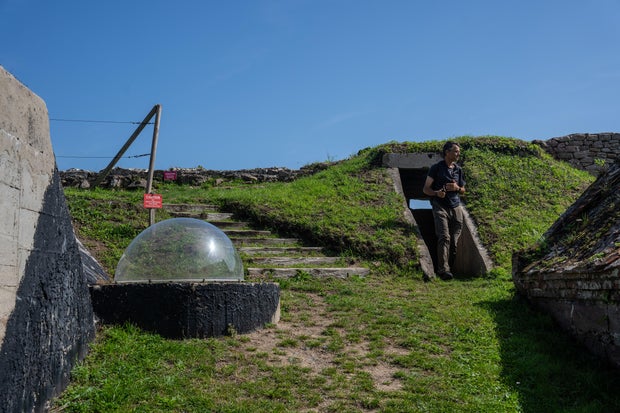London — It is not a common fact that the westernmost Nazi concentration camp during the Second World War was located on a small and remote island belonging to Great Britain. But on Wednesday, 80 years after the liberation of the island of Alderney from Adolf Hitler’s forces, the British Envoy for Post-Holocaust Issues revealed that 1,134 people probably died there – and that “a succession of cover-ups” by post-war British governments attempted to obscure the failure to prosecute Nazi officials responsible for war crimes on British soil.
Just off the coast of northern France, Alderney is one of the lesser-known Channel Islands, all of which were taken by Germany during the Second World War. Appreciated today for its white sand beaches, wild landscape and peaceful pace of life, for Hitler it was a strategic location to build fortifications for the “Atlantic Wall”, designed to protect his empire from the Allies.
The inhabitants of Alderney almost entirely evacuated the island before the Nazi occupation in 1940, so the Germans brought in prisoners from Europe and North Africa to build huge concrete bunkers and other structures, many of which can still be seen today, slowly being swallowed by nature as CBS News’ Holly Williams reported for 60 Minutes in April.
Carl Court/Getty
“For most of those sent to the island, Alderney was hell on Earth,” said Lord Pickles, who commissioned a panel of experts to revise the previous official death toll estimated at 389. There has long been fierce controversy over how many people died in Alderney, with many arguing that the true figures could be thousands more than those recorded by the Pantcheff Report, the military investigation that followed immediately after the war.
“At a time when parts of Europe seek to wash away their history through the Holocaust, the British Isles must tell the unvarnished truth,” writes Pickles in the magazine’s foreword. “Numbers matter. It is both a distortion of the Holocaust to exaggerate the number of deaths and to underestimate the numbers. Exaggeration plays into the hands of Holocaust deniers and undermines the six million dead. The truth can never harm us.”
Many of the Nazi officers responsible for the atrocities at Alderney later ended up in British prisoner of war camps, but were never prosecuted by Britain.
As most of the Alderney victims were Soviets (many from modern-day Ukraine), and in an attempt to encourage cooperation from Moscow, the British government handed the Pantcheff Report to the then USSR as evidence and encouraged it to prosecute the Nazi officials. The Soviets never did, however.
“They should have faced British justice,” Pickles wrote. “The fact that they have not done so is a stain on the reputation of successive British governments.”
The documentary review, carried out by a panel of historians and other experts from across Europe commissioned by Pickles, found no evidence that the island’s four camps functioned as a “mini Auschwitz”, or a smaller version of any of the camps. notorious extermination camps on the European continent.
Carl Court/Getty
Although there was no extermination mission, speaker Dr. Gilly Carr said 60 minutes last month that the prisoners at Alderney “were certainly seen as expendable. The aim was to take all the work away from them and if they died it didn’t matter, and that was, perhaps, to be expected”.
After examining thousands of records, the review panel calculated that between 7,608 and 7,812 people were sent to Alderney by the Germans, and that 594 of them were Jews from France. Deaths in the Alderney camps were estimated by the panel to likely be between 641 and 1,027, but possibly as many as 1,134.
British Chief Rabbi Sir Ephraim Mirvis welcomed the findings.
“Having an official account of this distressing element of the island’s history is vital,” he said. “This allows us to accurately remember the individuals who suffered and died so tragically on British soil. Marking the relevant locations will now be an appropriate step to take, to ensure this information is widely available.”

























